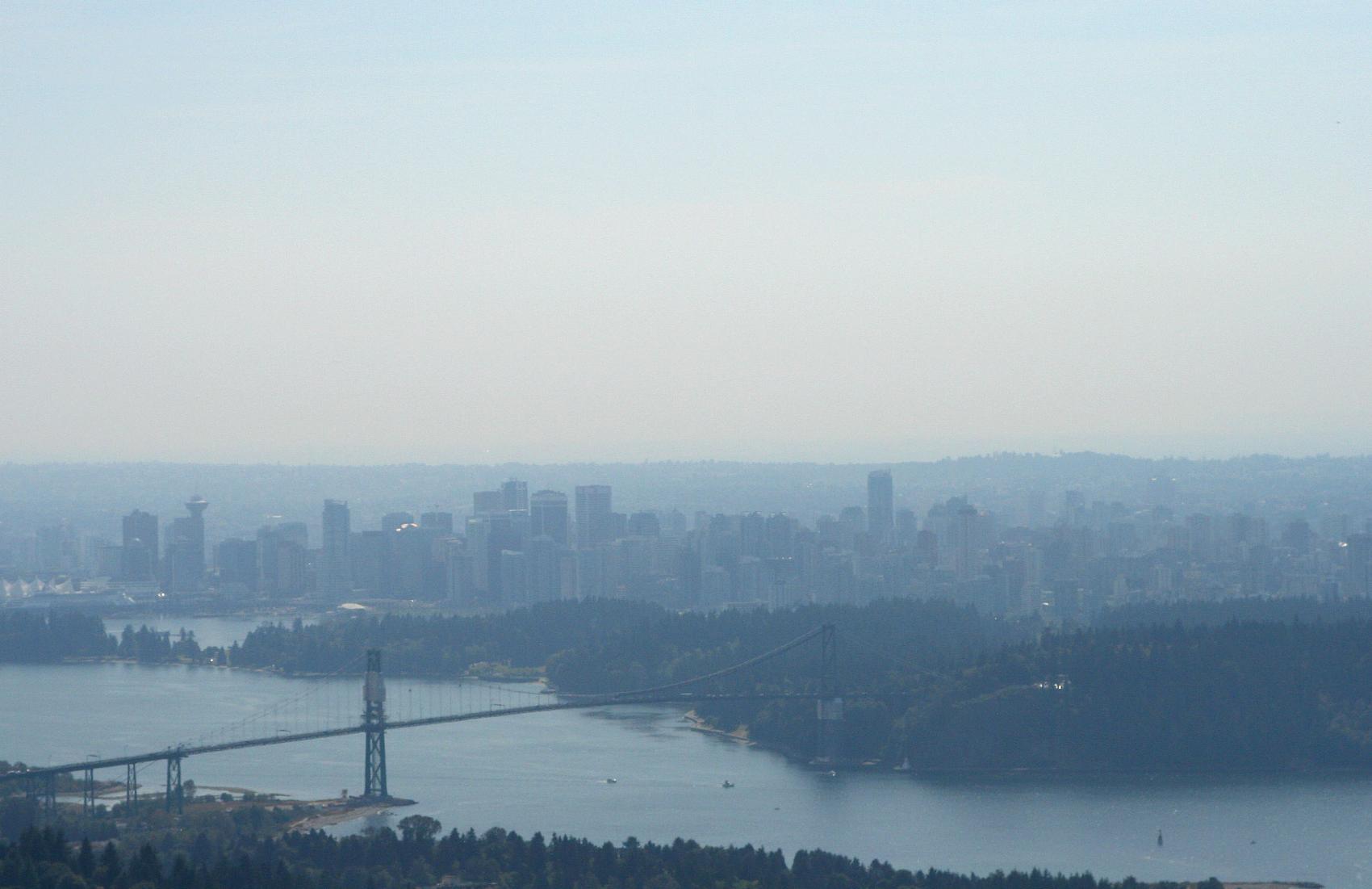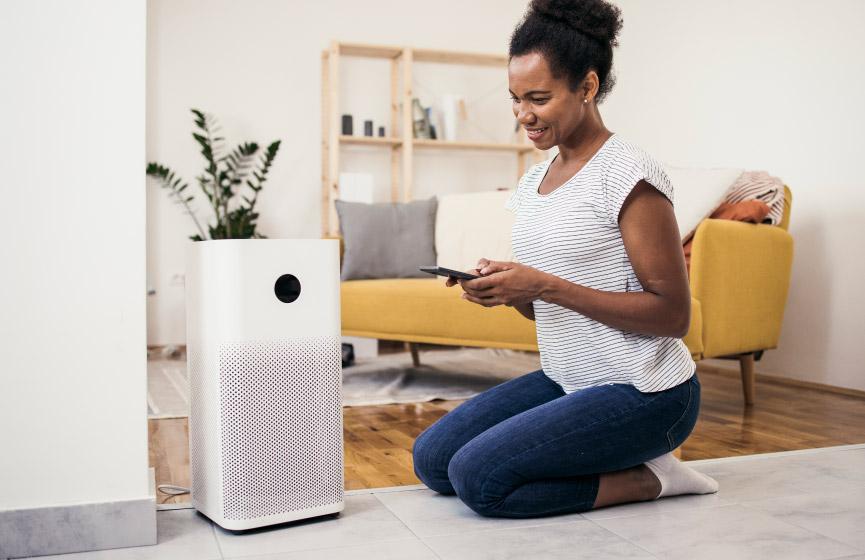Why protecting air quality in BC matters to your health — not just during wildfire season
By Carolyn Ali

Vancouver has some of the best air quality in the world. Here’s why we need to fight for it.
As anyone who suffers from seasonal allergies can attest, pollen wafting through the air can cause a lot of misery. Other gasses and particles that you can’t see—a swirling mix of air pollution—can make seasonal allergies worse. And although British Columbia’s air quality might not seem that bad outside of wildfire season, research shows that almost any amount of pollution affects your health year-round—and in more ways than you might think.
“The whole spectrum of things that are affected by air quality is expanding,” says Dr. Michael Brauer, a professor in UBC Faculty of Medicine’s School of Population and Public Health. This includes everything from respiratory diseases that affect your lungs to heart attacks, strokes, diabetes and dementia. There is also evidence that air pollution has impacts on pregnancy and childhood cognitive development, among other things.
Dr. Brauer is one of the researchers behind new WHO Global Air Quality Guidelines. The first update since 2005, the 2021 guidelines show that air pollution affects human health at lower concentrations than previously understood. And while Canada’s air pollution is on the low end of the spectrum compared to countries like China and India, particularly in our urban areas, it still puts our health at risk.
Nationally, it’s estimated that 15,000 people die every year as a result of air pollution, up to 2,000 of them in BC. Countless more suffer from its effects, although they may not even realize it.
“Air quality here is among the best in the world,” says Dr. Brauer. “But we don’t see any evidence of a ‘safe’ level of pollution at all.”


Small pollution increases can have a big effect on health
Research shows that at low levels of pollution, a small increase has an outsized effect on health.
“In a clean place like Vancouver, even a tiny bit more air pollution has a significant effect, relatively speaking, compared to places with high levels of pollution like China,” says Dr. Christopher Carlsten, a professor of respiratory medicine at UBC’s Department of Medicine. “In places where pollution is already really bad, a small increase doesn’t really change that much in terms of health.”
That’s why we need to remain vigilant. “As a society, we need to fight to protect every bit of good air quality we have,” says Dr. Carlsten. “If we’re not careful, we can lose air quality and not even see it visually, and we’ll lose health benefits.”
Reducing pollution is an uphill battle. “A lot of what we benefit from is at risk because of climate change,” explains Dr. Brauer. Wildfires are now the most important source of air pollution in BC, and climate events like heat domes with smoggy days will only get worse.
The good news? “There’s evidence that when we have programs and policy in place to improve air quality, we do see benefits,” says Dr. Brauer.

Improving indoor air quality for all
Another member of RAIN, Dr. Steven N. Rogak focuses on aerosols and improving air quality in homes and workplaces. “A lot of these health effects are associated with particulate matter,” he notes. “That’s a solid or liquid particle that’s smaller than a micron in diameter (a millionth of a meter). You can’t see them with the naked eye. In a typical room you’re breathing in around a thousand of these in each cubic centimetre of air.”
Dr. Rogak says that people who suffer from respiratory illnesses can benefit from running HEPA air purifiers in their home to help clean the air of these particles. But on a societal level, we need to be looking at more sophisticated ventilation in our schools, offices and commercial spaces so that we can adapt to episodes of bad air quality from wildfires and heat waves, as well as airborne diseases that affect our health, like COVID-19.
“The majority of the population could be healthier if they have better air quality. Then there’s a segment of the population for whom it’s really a matter of life or death.”
– Dr. Steven Rogak, Professor of Mechanical engineering, UBC Faculty of Applied Science
“Buildings aren’t designed for these episodic, major events like a heat wave that will last for a week, or a wave of Omicron that comes for a few months,” says Dr. Rogak, who is a professor of mechanical engineering in the Faculty of Applied Science. “Some buildings are naturally ventilated, which means they rely on opening windows. That can be great for cooling a building and saving energy in the summer. But you can’t really do that at the same time that you want to keep the particles out. So we’re trying to find the right way to balance and control buildings.”
That’s especially important for people with respiratory diseases and other medical conditions that are very affected by poor air quality. “The majority of the population could be healthier if they have better air quality, although they might not notice it immediately,” says Dr. Rogak. “Then there’s a segment of the population for whom it’s really a matter of life or death.”
That’s why he emphasizes that we need to all work together to protect the air quality we have. “Even if you can’t see it, it makes a difference.”
Learn more about what affects air quality in BC
Carolyn Ali is a writer for UBC Brand and Marketing. With files from Erik Rolfsen, UBC Media Relations. This article was published on March 10, 2022. Feel free to republish the text of this article, but please follow our guidelines for attribution and seek any necessary permissions before doing so. Please note that images are not included in this blanket licence.


